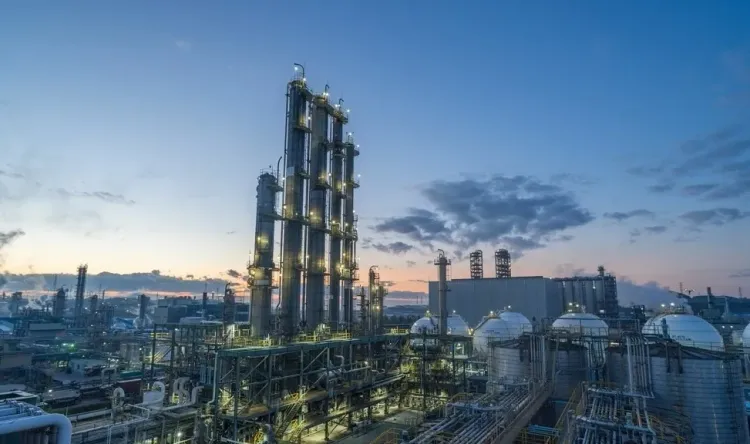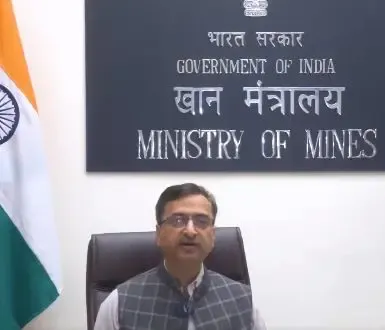What Steps is S. Korea Taking to Support 'Voluntary' Restructuring of the Petrochemical Industry?

Synopsis
Key Takeaways
- Voluntary restructuring is aimed to tackle oversupply.
- Focus on producing high-value specialty products.
- Government support will be based on three key principles.
- Urgent measures are needed to enhance financial stability.
- Potential designation of special zones for industrial crisis response.
Seoul, Aug 20 (NationPress) The government is set to assist the struggling petrochemical sector's voluntary restructuring initiatives, which aim to address the widespread crisis caused by global oversupply, as reported by the industry ministry on Wednesday.
The strategy for restructuring the petrochemical industry is designed to alleviate oversupply, shift towards the production of high-value specialty products, enhance the financial stability of companies, and mitigate the restructuring's effects on local economies, according to the Ministry of Trade, Industry and Energy, as per Yonhap news agency.
Support for the restructuring will be based on three key principles: the concurrent restructuring of three petrochemical industrial complexes, the necessity for substantial self-rescue efforts and the development of a practical business restructuring plan by companies, and the creation of a comprehensive government support package, as explained by the ministry.
This initiative was unveiled during a meeting of economy-related ministers focused on enhancing South Korea's industrial competitiveness, in light of concerns that local petrochemical firms might struggle to survive due to the ongoing crisis driven by weak global demand and an influx of low-cost Chinese products.
A recent analysis by Boston Consulting Group warned that if the current downturn continues, nearly half of South Korea's petrochemical companies could face extinction in the next three years due to their fragile financial condition.
Post-meeting, Industry Minister Kim Jung-kwan convened with petrochemical industry representatives, resulting in an agreement for government backing of companies' voluntary restructuring efforts to strengthen sector competitiveness.
The petrochemical industry has committed to reducing up to 3.7 million tons of naphtha cracking center capacity while transitioning to the manufacture of high-value and environmentally friendly products.
As part of the agreement, petrochemical companies will prepare and submit a detailed business restructuring plan that includes strategies for enhancing competitiveness and improving financial health by year's end, according to the ministry.
The ministry will assess these plans to formulate a support package that includes financial assistance, tax incentives, research and development (R&D) benefits, and regulatory reforms for the companies.
Additionally, the government is contemplating designating the central city of Seosan, home to one of the nation's three major petrochemical industrial complexes, as a special zone that requires proactive measures in response to the industrial crisis. The government previously designated the southwestern city of Yeosu, which also contains a petrochemical industrial complex, as such a zone in May.









